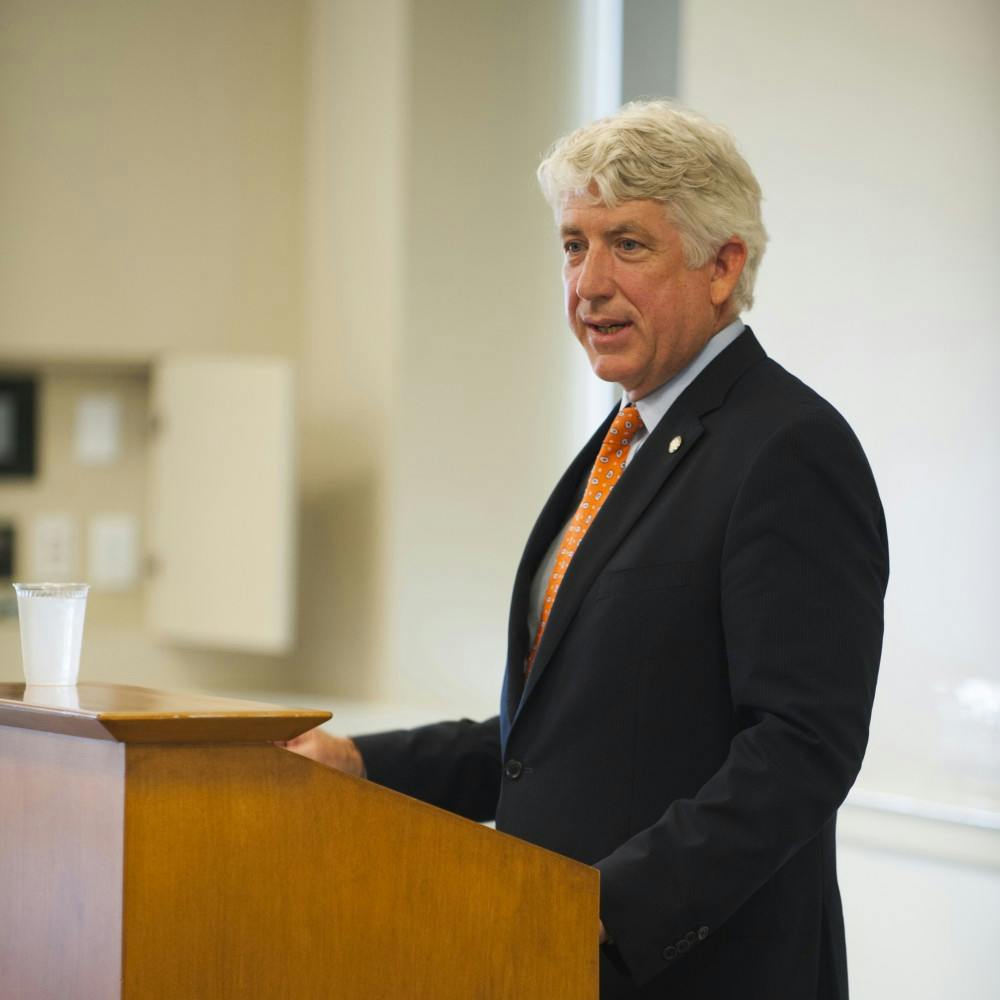Democratic Virginia Attorney General Mark Herring visited Charlottesville’s First Baptist Church earlier this month to host a roundtable discussion with community leaders and representatives about ways to combat rising levels of hate crimes and white supremacist violence in the Commonwealth.
The event held Dec. 5 was part of a series of roundtables Herring will preside over around the state leading up to the next legislative session of the General Assembly. He has also attended discussions in Leesburg, Alexandria Richmond and Norfolk and has one scheduled on Roanoke on Dec. 19.
The roundtables were planned as part of a legislative package, launched in November, that also included an announcement of the bills. The roundtables were described as an outlet to “discuss his legislation and the ways various communities are impacted by and responding to the rise in hate crimes and white supremacist violence.”
“Charlottesville may be able to bring a different perspective than the others because of the events that have happened here recently, but all of this is really related to a rise we see in hate crimes in Virginia and across the country,” Herring said.
Herring said the state police has reported a 65 percent increase in hate crimes since 2013.
In order to address those concerns, Herring has proposed six legislative policy changes. The bills, if passed, will serve to update Virginia’s definition of “hate crime,” empower the attorney general to prosecute hate crimes, prohibit paramilitary activity, identify and intervene in the actions of violent white supremacist and hate groups, authorize communities to ban firearms in public space during a permitted event and keep guns away from those convicted of hate crimes.
“We need to work more with communities to identify these hate crimes where they happen so that they can be catalogued and reported, and of course we want to take action and prosecute these crimes,” Herring said.
Other voices in the discussion included Heather Hill, vice mayor of the Charlottesville City Council, religious leaders from Episcopal, Baptist, Bahai, Islamic and Jewish backgrounds, representatives from the Hispanic, Asian, black and LGBTQ communities, as well as Charlottesville Sheriff’s Department and Police Department members. Del. David J. Toscano (D-Charlottesville) was also in attendance.
Herring began the conversation by remarking that “it is well past time to acknowledge that hate crimes are on the rise … we see it on the news, we sense it in our own communities.”
One speaker, Rabbi Rachel Schmelkin, spoke about discrimination she has witnessed in the Jewish community of Charlottesville following the anti-semitic Pittsburgh synagogue shooting, in which 11 were killed.
While debriefing with high school students, Rabbi Schmelkin noticed that they were “surprisingly quiet about it.”
“They expressed that they were relieved it didn’t happen here. They felt it would,” she said. “It just shows how unsettled our children have been since the events of August 12.”
The community leaders discussed the need for increased regulation of social media and technology as a method for hate crimes.
Rashall Brackney, Charlottesville Chief of Police, noted that hateful robocalls are being utilized in the city to disseminate hate speech, and other leaders mentioned the tendency to “codify” biased statements in “swatting” calls, which weaponize police by falsely reporting “suspicious activity” on the basis of minority status.
“We have to be courageous when dealing with dominant culture,” she said. “That requires being uncomfortable in a lot of places and requires being honest about buzzwords like white privilege and white fragility.”
Herring emphasized the need for legislators to meet with leaders at every level to condemn bigotry and pair words with action to enact change, as well as to create far reaching solutions across jurisdictional boundaries.







